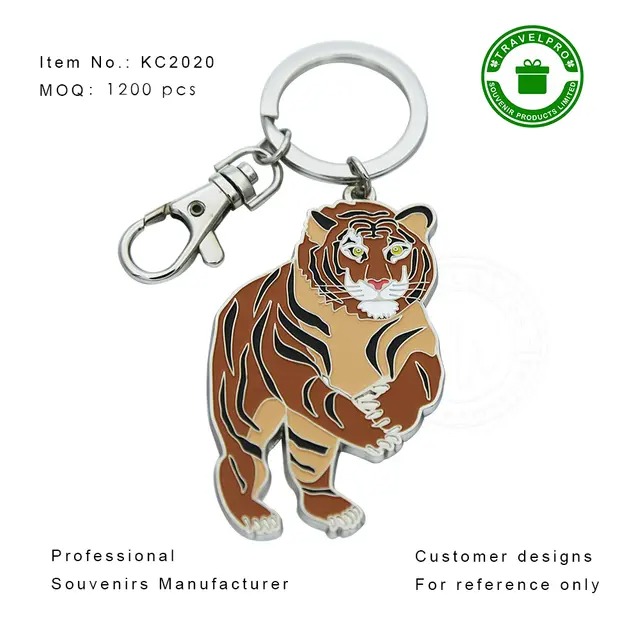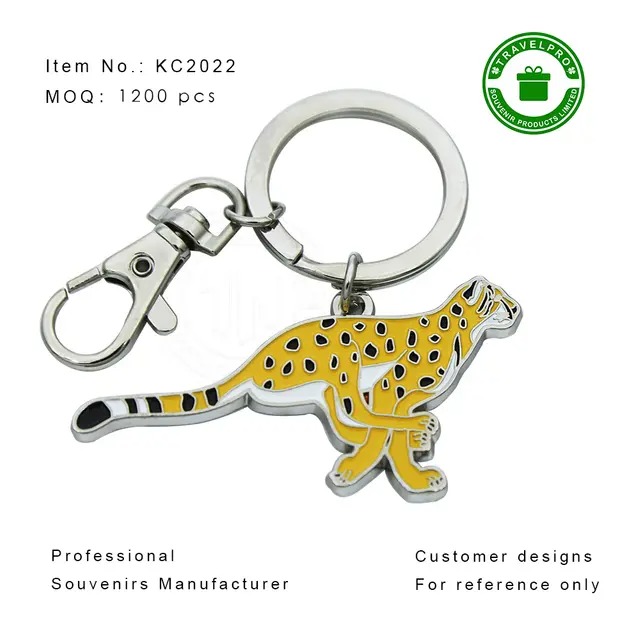Views: 195 Author: Site Editor Publish Time: 2025-07-11 Origin: Site








Metal keychains are more than just everyday accessories; they’re compact symbols of identity, functionality, and style. Whether used for promotional branding, personal use, or as collectible items, the type of metal used in crafting a keychain plays a pivotal role in its durability, aesthetic appeal, and overall value. But what is the best metal to use for keychains? The answer depends on various factors such as corrosion resistance, weight, strength, cost, and visual finish. This article dives deep into the different metals used for keychains and identifies the top contenders for long-lasting, high-quality results.
The material you choose for a metal keychain directly affects the product's lifespan, usability, and perception. Metals vary widely in terms of their physical and chemical properties. Some metals are prized for their anti-corrosive nature, while others are chosen for their ease of engraving, affordability, or premium shine.
For manufacturers and consumers alike, understanding the pros and cons of different metals is essential before selecting the right type. The wrong material could result in tarnished surfaces, broken attachments, or a hefty price tag without added benefit. The right one? A durable, stylish companion for your keys that lasts for years without significant wear and tear.
Let’s begin by reviewing the most frequently used metals for metal keychains, along with a side-by-side comparison of their core attributes.
| Metal Type | Corrosion Resistance | Weight | Durability | Finish/Aesthetic | Cost |
|---|---|---|---|---|---|
| Stainless Steel | Excellent | Medium | High | Modern, shiny | Moderate |
| Zinc Alloy | Good | Light | Medium | Versatile, colored | Low |
| Aluminum | Moderate | Very Light | Medium | Matte or anodized | Low |
| Brass | Good | Medium | High | Antique, warm | Moderate |
| Copper | Fair | Medium | Medium | Rustic, oxidizing | Moderate |
| Titanium | Excellent | Very Light | Very High | Sleek, metallic gray | High |
This table provides a quick snapshot, but each metal deserves a deeper look to fully appreciate its strengths and limitations in the world of keychain manufacturing.

When strength and resistance to wear are top priorities, stainless steel emerges as the superior metal for keychains. Composed mainly of iron, carbon, and chromium, stainless steel boasts a high tensile strength and exceptional corrosion resistance, even in humid or salty environments. It’s an ideal choice for keychains expected to endure daily handling, outdoor use, or exposure to moisture.
One of stainless steel’s greatest assets is its clean, professional appearance. It’s commonly used for executive-style keychains, engraved logos, and minimalist designs. Although it weighs slightly more than alternatives like aluminum or zinc alloy, its robustness more than compensates for the added heft.
Moreover, stainless steel is relatively affordable considering its long-term durability. It requires minimal maintenance and resists tarnishing, making it a popular material in both budget and premium markets.
Zinc alloy keychains are particularly popular in mass production and promotional merchandise due to their affordability and ease of casting into complex shapes. While zinc doesn’t naturally have the same strength as stainless steel, it can be blended with other metals to improve its toughness and durability.
One major benefit of zinc alloy is its adaptability. It allows for intricate detailing, vibrant enamel finishes, and color plating such as gold, silver, or black nickel. As such, it’s often the metal of choice for custom-designed novelty keychains, logos, and themed merchandise.
However, zinc alloy has a few drawbacks. Its resistance to corrosion is moderate, and over time, especially with frequent handling or exposure to humidity, the outer plating can wear down. Still, for short- to medium-term applications, zinc alloy offers an excellent balance between form and function at a low cost.
Aluminum is a go-to material for users who prioritize lightweight metal keychains. As one of the lightest metals available, it’s perfect for those who don’t want added bulk in their pockets or handbags.
Aluminum doesn’t rust, but it can oxidize, developing a thin layer of aluminum oxide on its surface. This layer acts as a natural shield, making it decently corrosion-resistant. It’s also soft enough to be engraved or stamped easily, which is useful for personalization.
That said, aluminum’s softness also means it can dent or scratch more easily than other metals. While anodized finishes can improve hardness and add vibrant colors, aluminum keychains are better suited for light-use applications or decorative purposes rather than rugged daily use.
Brass and copper bring a distinct vintage charm to metal keychains. Often used for artistic or handcrafted keychains, these metals are favored for their natural colors and aging processes.
Brass, an alloy of copper and zinc, features a warm, golden tone and moderate corrosion resistance. It’s stronger than pure copper and tends to maintain its luster longer. Over time, brass develops a natural patina that some users find attractive, giving the keychain a more antique or rustic look.
Copper, on the other hand, is softer and more prone to scratches and oxidation. However, it offers a beautiful reddish hue and can be easily shaped and engraved. Like brass, copper also develops a patina over time, which can add to its visual uniqueness.
While neither brass nor copper is ideal for high-impact use due to their softer properties, they shine in aesthetic applications where visual impact and uniqueness matter more than sheer durability.
If you’re looking for the most premium metal keychain material, look no further than titanium. Known for its high strength-to-weight ratio, excellent corrosion resistance, and hypoallergenic properties, titanium is the metal of choice in aerospace, medical devices, and luxury accessories.
A titanium keychain is incredibly lightweight yet almost unbreakable, making it perfect for rugged environments, keychain tools, or minimalist everyday carry (EDC) users. The matte gray finish of titanium has a modern, understated elegance that appeals to premium buyers.
The only downside? Cost. Titanium is significantly more expensive than other metals on this list. It also requires specialized tools for processing and engraving, which can increase production complexity. Still, for those seeking performance and prestige in one package, titanium delivers without compromise.

Zinc alloy is typically the best choice for custom logo keychains due to its flexibility in molding and surface treatment. It allows for intricate designs, enamel fills, and affordable production costs.
Stainless steel and titanium are the top choices for outdoor environments. Both resist corrosion, are highly durable, and require minimal maintenance.
Metal keychains can interfere with key fob signals if they are overly large or contain magnets. To avoid issues, choose slim metal keychains and keep them separate from fobs.
Regular cleaning with a soft cloth and mild soap helps. Avoid prolonged exposure to moisture or harsh chemicals. For brass and copper, consider polishing to maintain shine or embrace the natural patina.
Choosing the best metal for keychains depends on your specific needs. Here's a summary to guide your decision:
Best Overall Durability: Stainless Steel
Best for Customization & Affordability: Zinc Alloy
Best Lightweight Option: Aluminum
Best for Vintage Look: Brass or Copper
Best Premium Option: Titanium
Each metal offers a unique combination of features. For general use, stainless steel often provides the best balance between cost, durability, and appearance. For design-focused or promotional keychains, zinc alloy’s versatility is hard to beat. And for those who desire the best of the best, titanium’s unmatched performance is worth the investment.